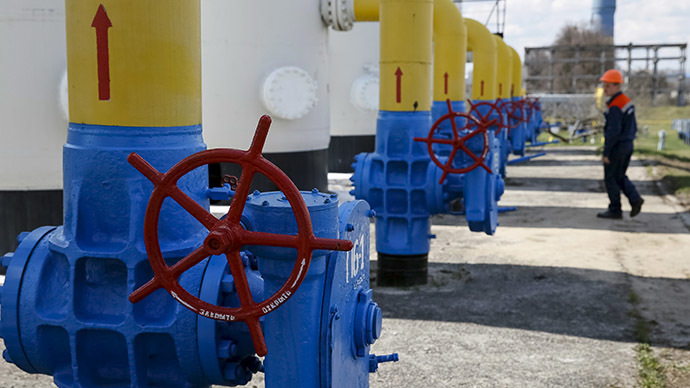Europe to support reverse gas supplies to Ukraine – draft document

Countries taking part in the Eastern Partnership summit in Riga will support reverse gas supplies to Ukraine from Poland, Hungary and Slovakia, according to a draft declaration obtained by TASS.
“The summit welcomed the opportunities open for reverse gas
supplies to Ukraine via Poland, Hungary and Slovakia,” says
the document quoted in the report.
The participants have also reportedly “supported the
establishment of the connective infrastructure for delivering gas
and electricity both within the EU and between the EU and the
countries of the Eastern Partnership,” the statement said.
The fourth summit of the Eastern Partnership opened in the
Latvian capital on Thursday. Its goal is to strengthen
cooperation between the EU and the post-Soviet European and
Transcaucasian republics.
Russia’s permanent representative to the EU, Vladimir Chizhov,
earlier said that work on the final declaration was rather tense,
as some countries want to strengthen anti-Russian attitudes and
others want to prevent this.
READ MORE: Ukraine doubles gas imports from Russia while Europe cuts reverse supplies
Ukraine, Moldova and Georgia, which are taking part in the forum,
signed an association agreement with the EU in 2014. Kiev now
wants “concrete assurances” and a roadmap for EU
membership, Foreign Minister Pavlo Klimkin told the German daily
Die Welt. This wish, however, is something that Brussels has been
hesitant to promise.
The Kiev government believes that reverse gas flows from EU
countries, which have already imported that gas via Ukraine from
Russia’s Gazprom, will make Ukraine less dependent on Russian
supplies. However, Gazprom disputes the legality of such
manipulations.
On May 5, Gazprom CEO Alexey Miller said that reverse gas
supplies to Ukraine halved in May after Hungary stopped
deliveries, a move followed by Poland.
Earlier, Russian energy minister Alexander Novak said that Russia
may bring legal claims to court in connection with reverse gas
supply to Ukraine from Europe, if it turns out the gas was never
really exported and re-imported, except on paper. This is
currently being investigated by Russian lawmakers.












